Introduction to Injection Quill in Piping
Introduction to Injection Quill in Piping
Injection quills play a crucial role in modern industry by ensuring precise chemical dosing into pipelines. These devices facilitate the uniform distribution of chemicals, preventing local concentrations that could corrode or damage the system. Typically, industries use them to inject additives that enhance process efficiency or protect the integrity of the fluid transport system.
Overview of Injection Quill Usage in Various Industries
Various industries rely heavily on injection quills for their operations. In the oil and gas sector, they prevent corrosion and scaling inside pipelines. Water treatment facilities use them to add disinfectants and other treatment chemicals efficiently. Pharmaceutical companies also utilize injection quills to maintain the purity and exact composition of their products. This wide-ranging applicability underscores their importance across sectors.
Importance of Injection Quills in Piping Systems
Injection quills are vital for maintaining the longevity and efficiency of piping systems. They ensure that chemicals mix thoroughly with the process stream before they reach critical components, reducing wear and tear. Moreover, their ability to deliver precise chemical doses minimizes waste and enhances the overall safety of the system. By safeguarding against chemical imbalances, injection quills contribute significantly to operational stability and safety.
Selection Model
| Model | ||||||||||||||||||||||||||||
| SI | Chemical Injector Quill | |||||||||||||||||||||||||||
| -Code | Plug | |||||||||||||||||||||||||||
| Pxxx | Type | Material | Sealing Material | |||||||||||||||||||||||||
| 0 | No Request | 0 | CS | 0 | No Request | |||||||||||||||||||||||
| 1 | Hollow Plug Body | 1 | 316SS | 3 | DSS | 1 | Viton O-Ring / PTFE Primary Packing | |||||||||||||||||||||
| 2 | Solid Plug Body | 2 | 316LSS | 4 | INCONEL | 2 | HNBR | |||||||||||||||||||||
| – Code | Injection Nut | |||||||||||||||||||||||||||
| Nxx | Connection Size | Material | ||||||||||||||||||||||||||
| 0 | i.e. No Request | 0 | i.e. CS | |||||||||||||||||||||||||
| 1 | i.e. 1/4″ | 1 | i.e. 316SS | 3 | i.e. DSS | |||||||||||||||||||||||
| 2 | i.e. 1/2″ | 2 | i.e. 316LSS | 4 | i.e. INCONEL | |||||||||||||||||||||||
| – Code | Injection Tube | |||||||||||||||||||||||||||
| Sxxx-Lx″ | Connection Size | Material | Nozzle | Line size(x″) | ||||||||||||||||||||||||
| 0 | No Request | 0 | CS | 0 | i.e. No Request | The most effective position for injection is generally at the center of the pipe | ||||||||||||||||||||||
| 1 | i.e. 1/4″ | 1 | i.e. 316SS | 1 | i.e. Open | |||||||||||||||||||||||
| 2 | i.e. 1/2″ | 2 | i.e. 316LSS | 2 | i.e. Quill | |||||||||||||||||||||||
| 3 | i.e. DSS | 3 | i.e. Cap & Core | |||||||||||||||||||||||||
| 4 | i.e. INCONEL | |||||||||||||||||||||||||||
| – Code | Nipple and Valve(or end Flange)of Tee | |||||||||||||||||||||||||||
| Txx | Connection Size | Material | ||||||||||||||||||||||||||
| 0 | i.e. No Request | 0 | i.e. CS | |||||||||||||||||||||||||
| 1 | i.e. 1/4″Nipple | a | i.e. 1/4″Nipple and Valve | 1 | i.e. 316SS | |||||||||||||||||||||||
| 2 | i.e. 1/2″Nipple | b | i.e. 1/2″Nipple and Valve | 2 | i.e. 316LSS | |||||||||||||||||||||||
| 3 | i.e. 3/4″Nipple | c | i.e. 3/4″Nipple and Valve | 3 | i.e. D SS | |||||||||||||||||||||||
| 4 | i.e. 1″Nipple | d | i.e. 1″Nipple and Valve | 4 | i.e. INCONEL | |||||||||||||||||||||||
| 5 | i.e. 1/4″Flange | e | i.e. 1/4″Nipple end Flange | |||||||||||||||||||||||||
| 6 | i.e. 1/2″Flange | f | i.e. 1/2″Nipple end Flange | |||||||||||||||||||||||||
| 7 | i.e. 3/4″Flange | g | i.e. 3/4″Nipple end Flange | |||||||||||||||||||||||||
| 8 | i.e. 1″Flange | h | i.e. 1″Nipple end Flange | |||||||||||||||||||||||||
| For Example, SI-P221-N12-S122-L4″-T22 | ||||||||||||||||||||||||||||
| SI:e.g. Sampling & Injection Assembly, | ||||||||||||||||||||||||||||
| P221: e.g. Solid Plug Body in 316LSS Viton O-Ring and PTFE Primary Packing, | ||||||||||||||||||||||||||||
| N12:e.g. injection Nut Connection Size is 1/4″and Material is 316LSS, | ||||||||||||||||||||||||||||
| S122:e.g. injection Tube Connection Size is 1/4″ and Material is 316LSS.Type of nozzle is quills | ||||||||||||||||||||||||||||
| L4″:For 4″pipe. | ||||||||||||||||||||||||||||
| T22: Nipple of Tee Connection Size is 1/2″, Nipple material is 316LSS | ||||||||||||||||||||||||||||
Understanding Injection Quills in Piping
What is an Injection Quill?
Definition and Basic Function
An injection quill is a device designed to safely and efficiently introduce chemicals into a pipeline. It ensures that chemicals disperse evenly within the flow of the fluid, preventing localized concentrations that could damage the system or degrade the process quality.
Components of an Injection Quill
Typically, an injection quill consists of a body, a check valve to prevent backflow, a nozzle for dispersing chemicals, and a connection port. These components work together to facilitate the smooth injection of chemicals into a pipeline.
How Injection Quills Work
Process of Injecting Chemicals into a Pipeline
Injection quills extend into the pipeline, allowing chemicals to enter the stream away from the pipe walls. This placement ensures thorough mixing and prevents the chemicals from concentrating in one area, which could lead to pipe damage or inefficient chemical use.
Role in Maintaining Fluid Flow and Pressure
By design, injection quills also help maintain consistent fluid flow and pressure within the pipeline. They introduce chemicals without disrupting the flow or causing pressure drops, which is crucial for maintaining the efficiency and safety of the pipeline operation. This feature is particularly important in high-pressure environments common in many industrial applications.
Specifications
| Name | Injection Quill in Piping |
| Material | Stainless Steel 304, Stainless Steel 316、DSS F51、Carbon Steel A105N、Inconel 625 |
| Operating Temperature | -20±120 |
| Feature | 1. Easy Operating |
| 2. High Accuracy Long Life | |
| 3. High Efficiency, Low cost | |
| Payment | TT/LC |
| Advantage | Firstly, they are lightweight and flexible. |
| Secondly, nice Injection efficiency. | |
| At last, accurate location tracking. |
Applications of Injection Quills
Injection quills serve as integral components in various industries, optimizing the delivery and effectiveness of chemical treatments within piping systems.
Industries that Utilize Injection Quills
Oil and Gas
In the oil and gas industry, operators use injection quills to inject corrosion inhibitors directly into pipelines. This practice helps maintain pipeline integrity and prolongs their operational life, which is crucial for preventing costly downtime and accidents.
Water Treatment
Water treatment plants rely on injection quills to add chlorine and other disinfectants safely. These quills ensure that chemicals disperse evenly, effectively neutralizing pathogens and ensuring water safety for communities.
Pharmaceutical Manufacturing
Pharmaceutical manufacturers use injection quills to introduce precise amounts of chemicals into their processes. This precision is essential for maintaining strict quality control and ensuring the efficacy and safety of pharmaceutical products.
Common Uses in Each Industry
Preventing Corrosion
Injection quills allow for the controlled release of corrosion inhibitors across industries, protecting vital components from chemical and oxidative damage.
Controlling Microbial Growth
In sectors like water treatment and pharmaceuticals, injection quills help manage microbial growth, ensuring compliance with health regulations and maintaining product integrity.
Facilitating Precise Chemical Dosing
Precision in chemical dosing is crucial across all sectors when using injection quills. Accurate dosing improves process efficiency, reduces waste, and minimizes environmental impact.


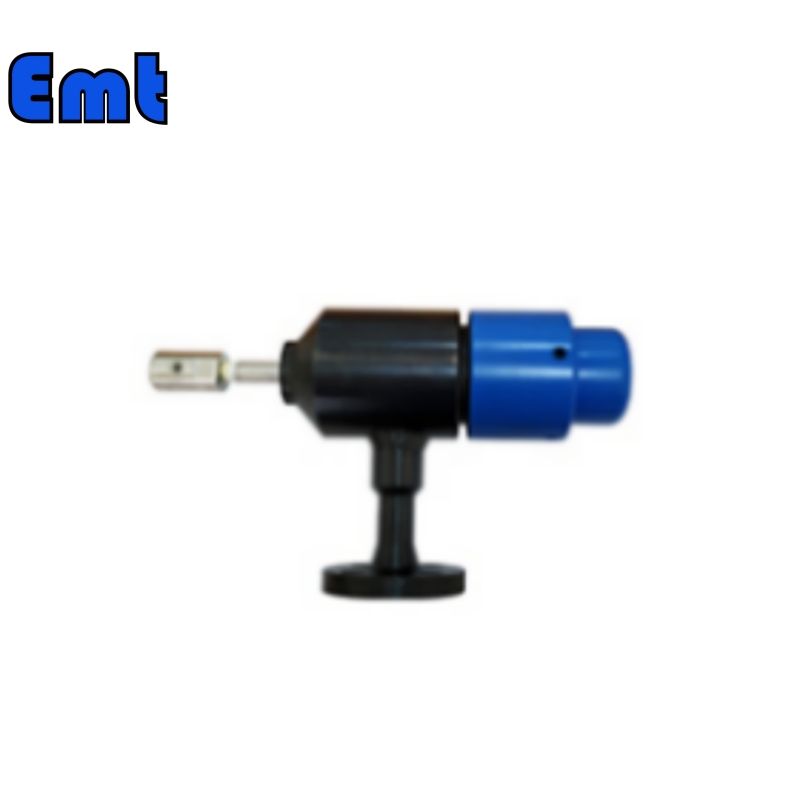
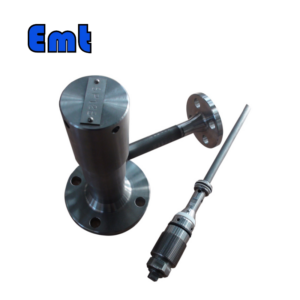
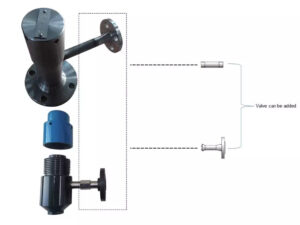
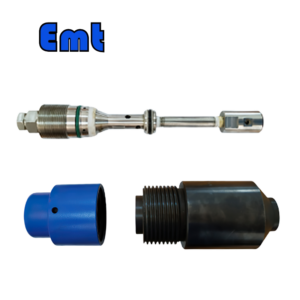
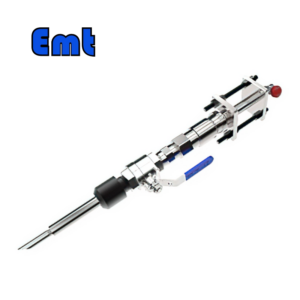
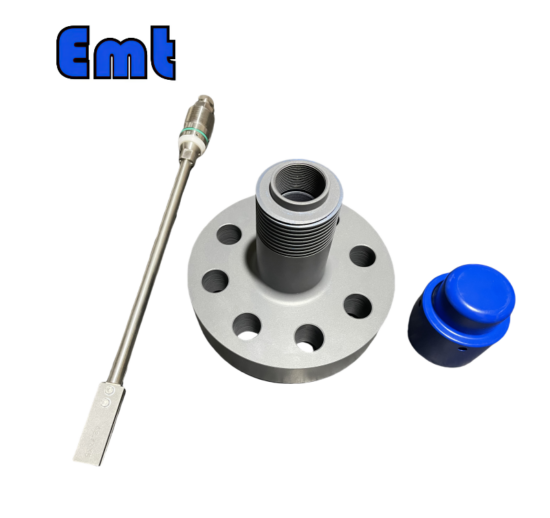
There are no reviews yet.